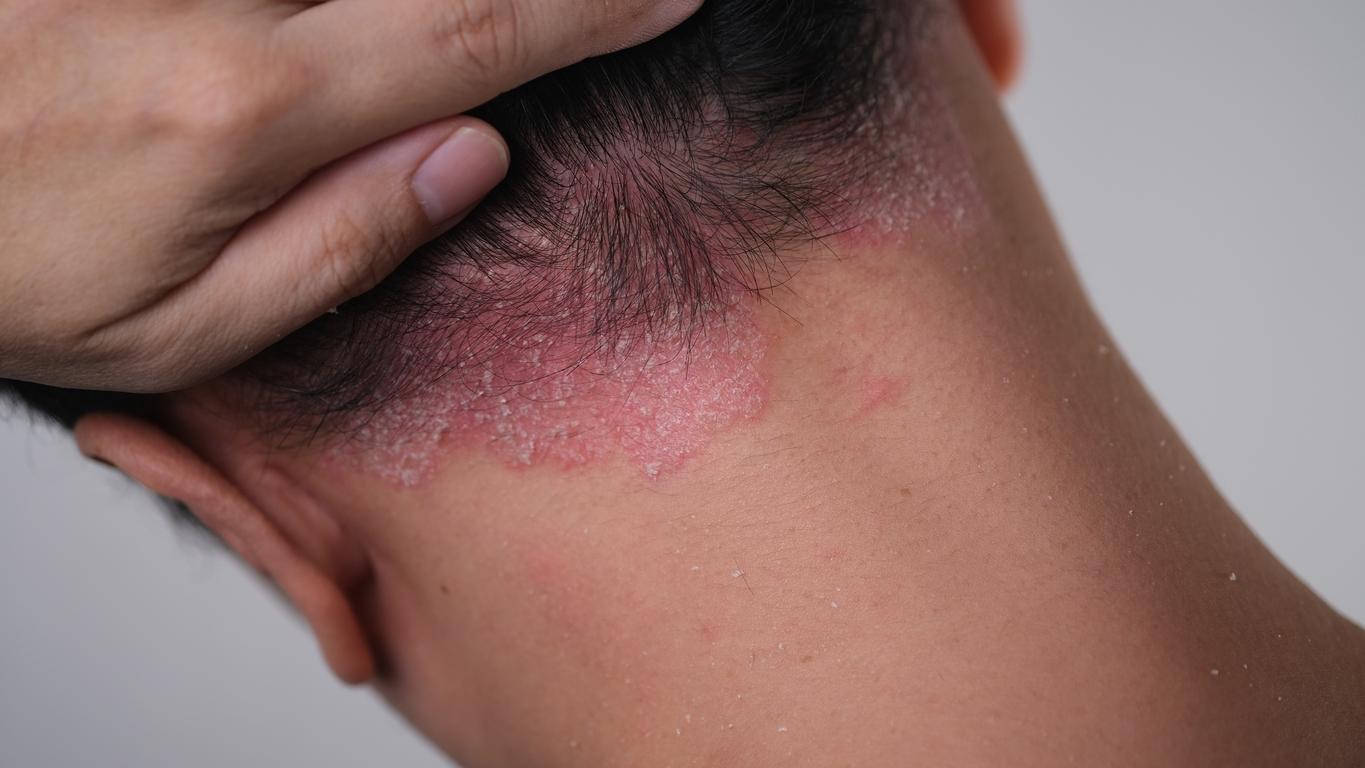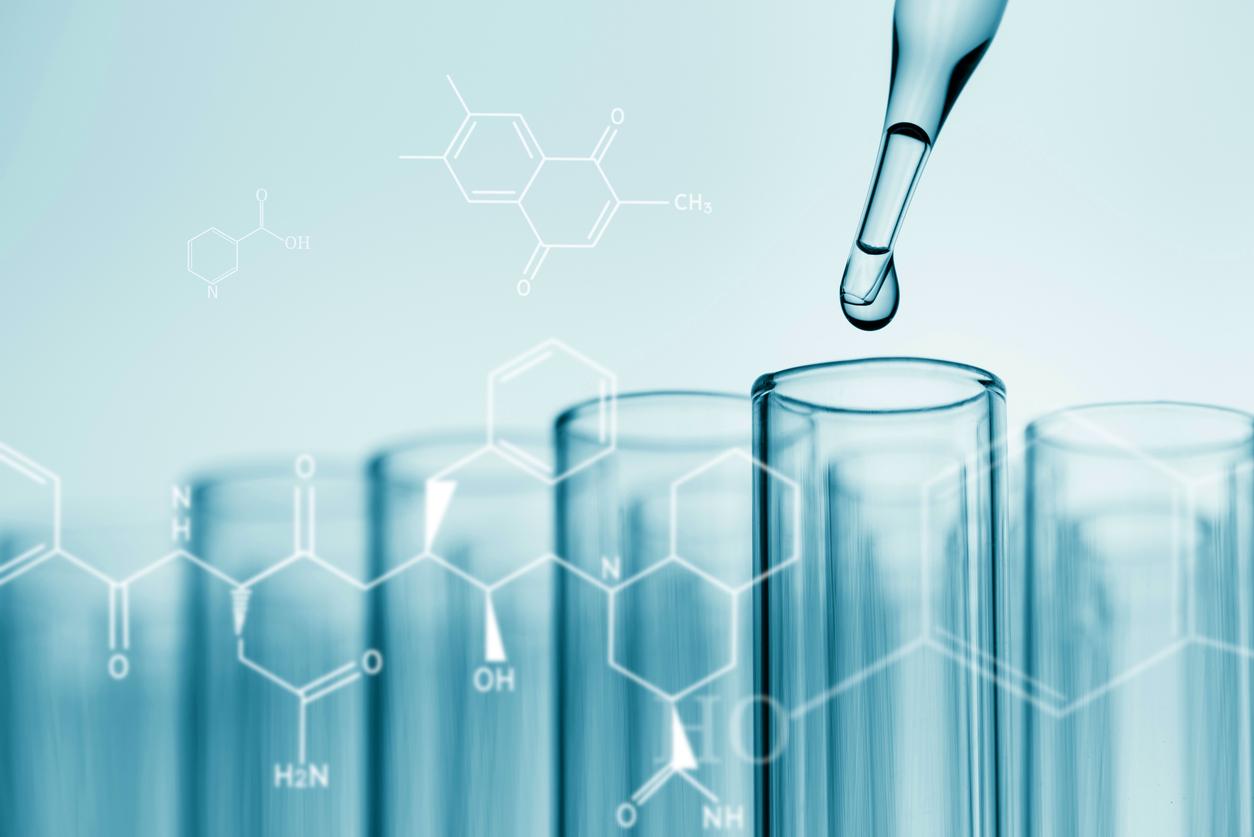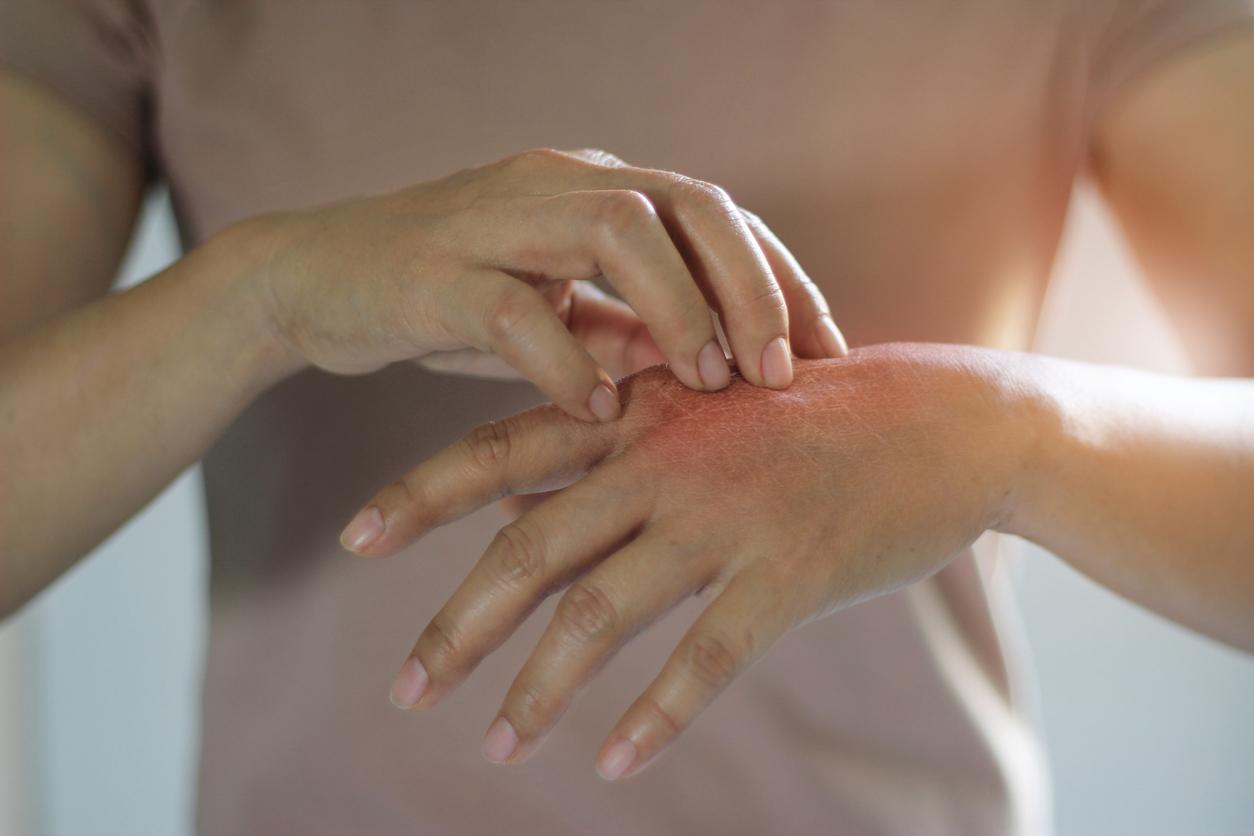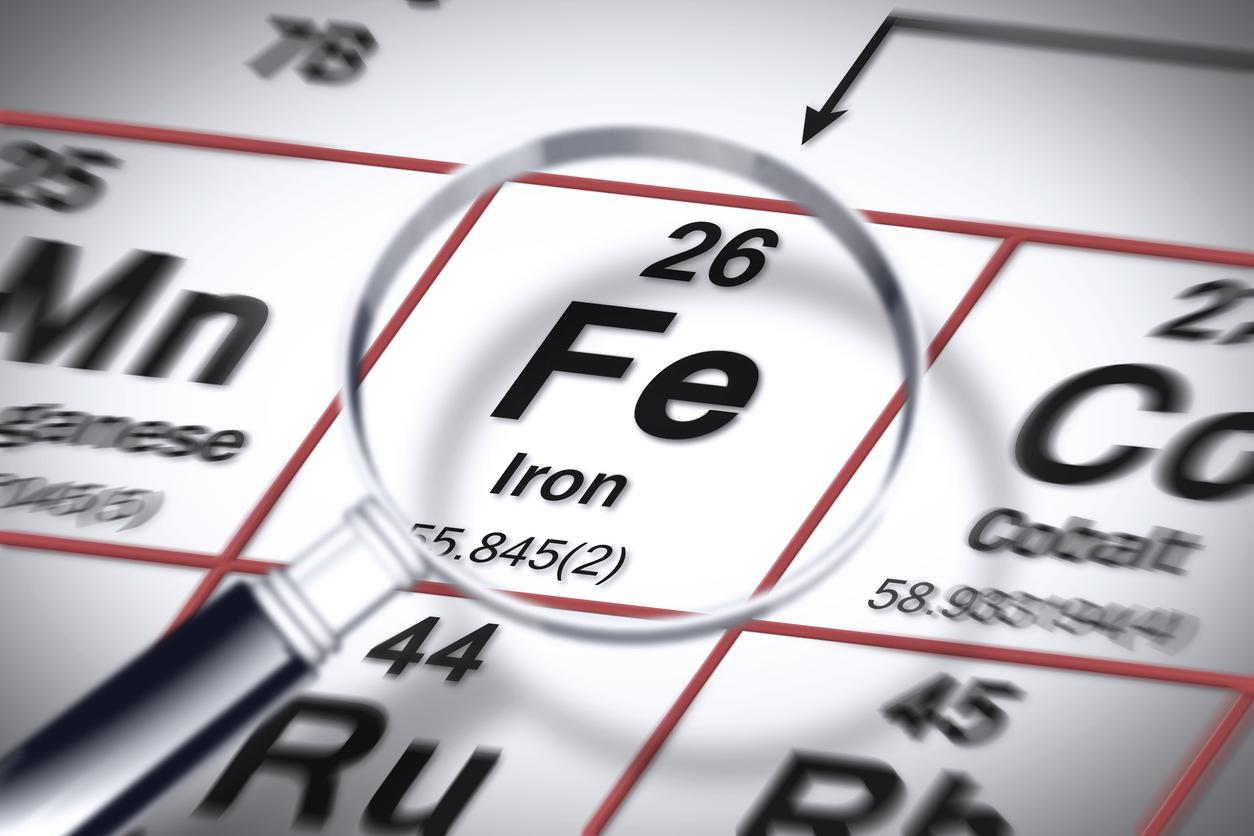Hepcidin, a hormone responsible for regulating iron levels in the body, is highly expressed in the epidermis and may trigger the onset of psoriasis.

- In healthy people, hepcidin, which controls the amount of iron absorbed from food, is produced exclusively in the liver. In adults with psoriasis, the hormone is also produced in the skin.
- Hepcidin is required for iron retention in skin cells, leading to hyperproliferation of the epidermal layer and recruitment of neutrophils, two main features of psoriatic skin lesions.
- Researchers hope this discovery will lead to the development of new drugs capable of blocking the action of the hormone.
“Psoriasis is a chronic, multifactorial inflammatory skin disease, the primary events of which are not yet elucidated. Iron overload has been described in the epidermis of patients with psoriasis, but its importance remains unknown,” indicated a research team led by Carole Peyssonnaux, Inserm research director at the Cochin Institute.
Excess skin iron triggers psoriasiform inflammation
To find out more about this accumulation of iron in the skin of patients, scientists took a close interest in hepcidin. As a reminder, this is a hormone regulating iron, which is essential for healing or the production of collagen in the body. If the latter is mainly synthesized by the liver in healthy adults, the professors previously discovered that hepcidin was strongly expressed in the epidermis of patients with psoriasis, particularly in severe forms such as pustular psoriasis, which is characterized by an accumulation of a type of white blood cells (neutrophils) within the epidermis.
In a new study, published in the journal Nature Communicationsthey looked at mice (which have many genetic and physiological similarities to humans) that developed a form of psoriasis after being exposed to high levels of hepcidin produced by the skin. Observations showed that the overabundance of the hormone caused the animals’ skin cells to retain much more iron than necessary. In turn, this excess iron triggered both hyperproliferation of skin cells and an abnormally high concentration of inflammation-inducing neutrophils in the upper layer of the skin. It is about “two main characteristics of psoriatic skin lesions.”

Psoriasis: a future drug capable of neutralizing hepcidin?
In the conclusions, the researchers indicate that hepcidin could be an interesting target for the treatment of psoriasis, in addition to current treatments, or as maintenance treatment during remission in order to prevent recurrences. According to the team, the people most likely to benefit from such treatment are patients with pustular psoriasis, which can affect the patient’s nails and joints as well as their skin.

















